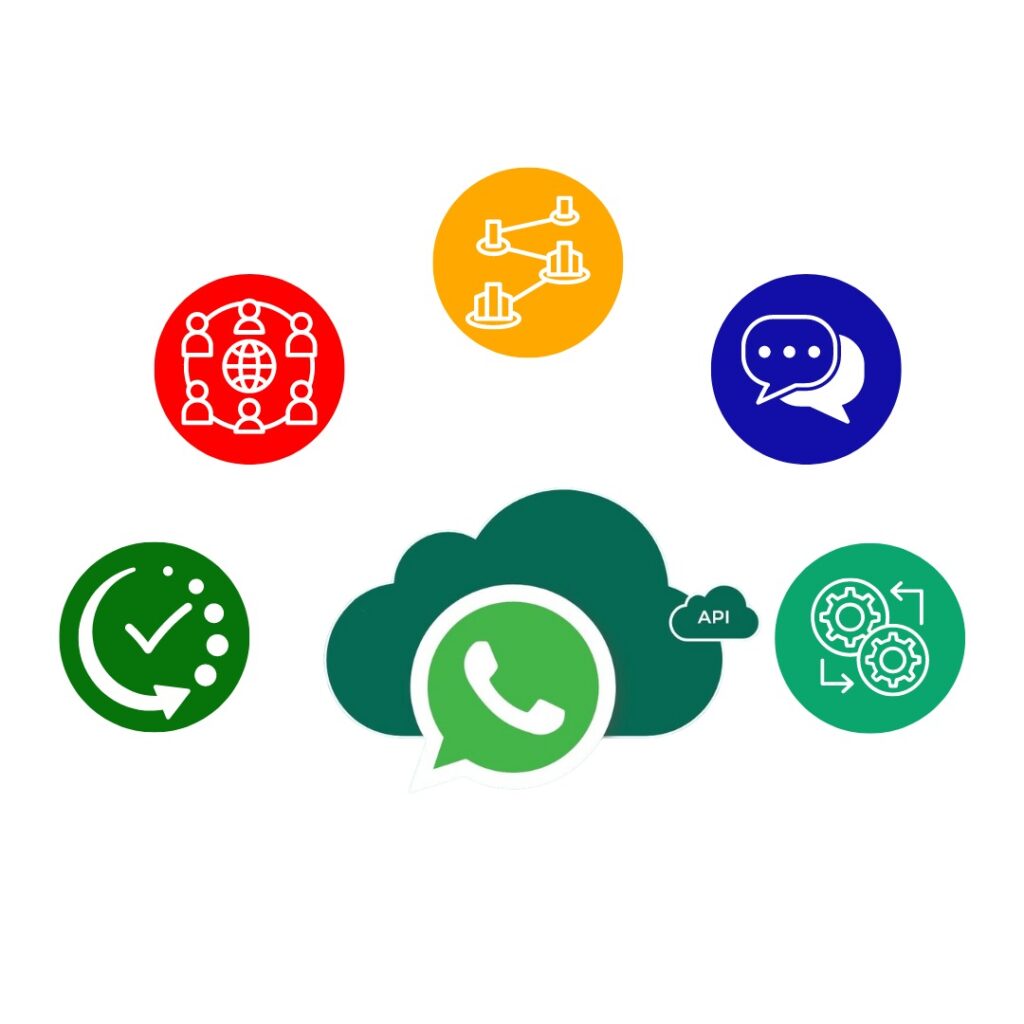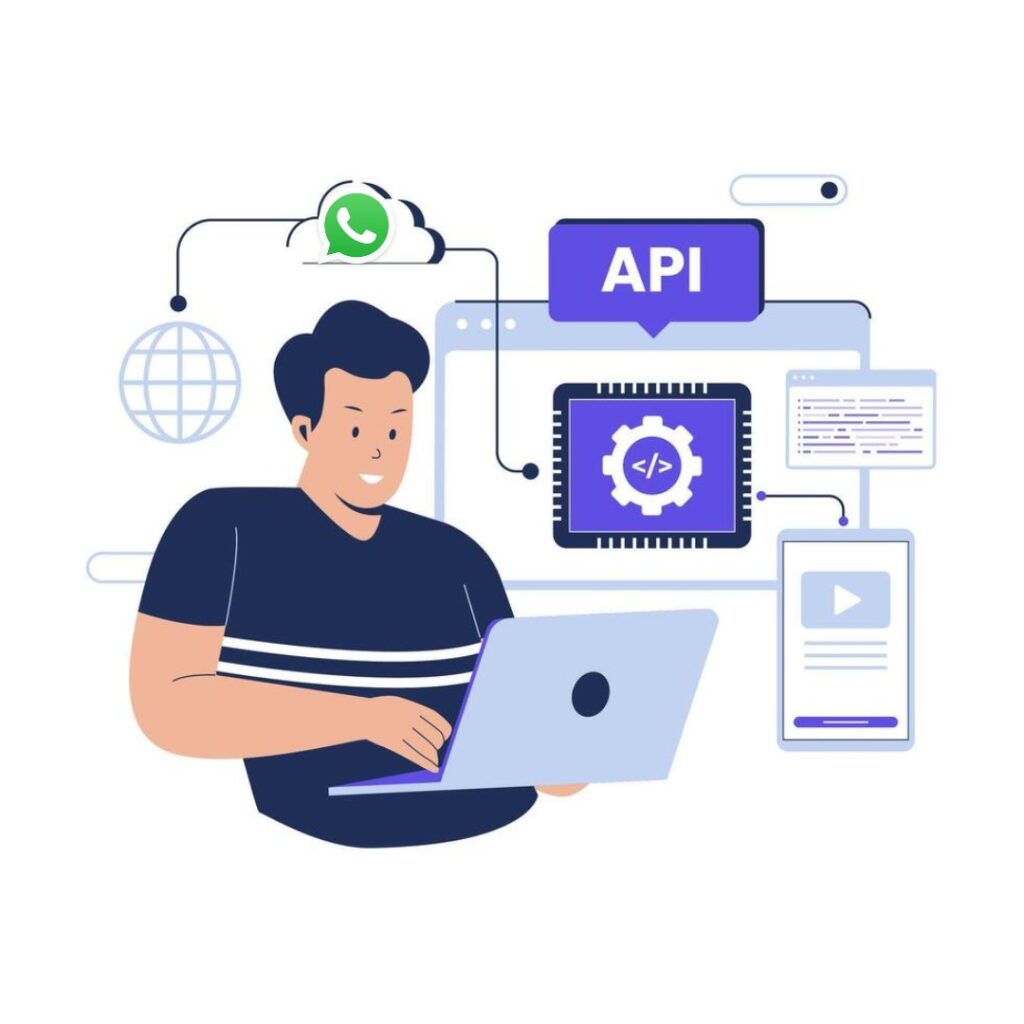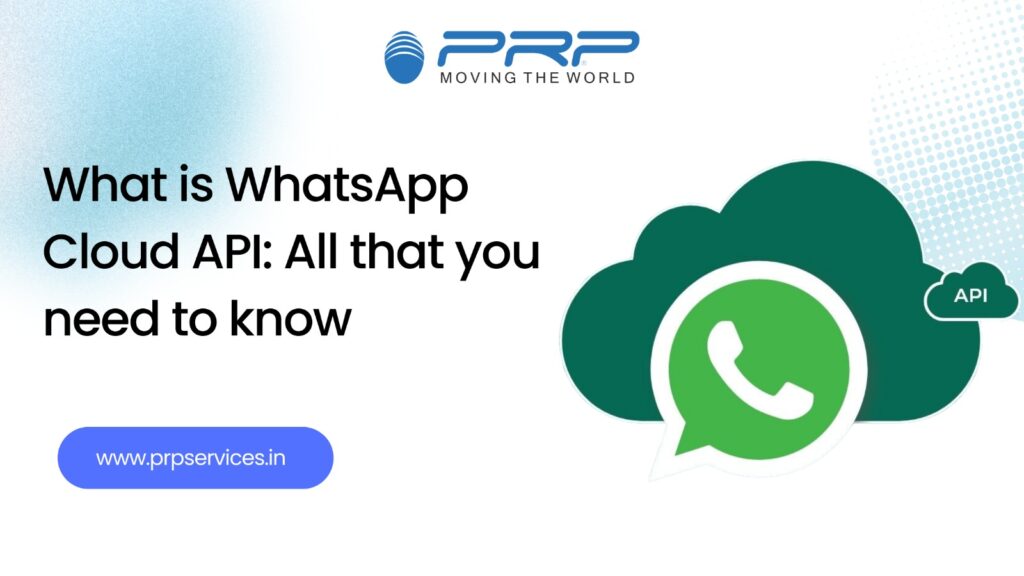For businesses who try to maintain effective and efficient interactions with their customers, communication channels are essential in today’s soon emerging digital landscape. This space is dominated by WhatsApp, a messaging platform with over two billion active users worldwide. In order to streamline business communications, WhatsApp developed the WhatsApp Cloud API to hold its widespread use. Let’s take a look at everything you need to know about WhatsApp Cloud API in 2024 in this comprehensive guide.
What is the WhatsApp Cloud API?
It is possible to integrate WhatsApp messaging capabilities into applications, websites, and systems without managing on-premise infrastructure with the cloud-based version of the WhatsApp business API that is available via WhatsApp cloud. Meta’s (formerly Facebook) cloud servers provide scalability, reliability, and ease of use for this API.
Difference between On-premise & WhatsApp Cloud API
Understanding the difference between the on-premise WhatsApp API and the WhatsApp Cloud API is essential for businesses deciding which solution best fits their needs.
On-premise WhatsApp API
- Infrastructure: Requires businesses to host the API on their servers.
- Maintenance: Businesses are responsible for maintaining servers, updates, and ensuring uptime.
- Scalability: Limited by the business’s server capacity and IT resources.
- Cost: Higher initial setup costs due to hardware and maintenance.
WhatsApp Cloud API
- Infrastructure: Hosted on Meta’s cloud servers.
- Maintenance: Meta manages server maintenance, updates, and uptime.
- Scalability: Easily scalable without worrying about server capacity.
- Cost: Lower initial setup costs, though subscription fees apply.
WhatsApp Cloud API Features

For the purpose of enhancing business communication, the WhatsApp cloud API offers numerous features, including:
- High Availability: Meta’s cloud servers ensure high availability and reliability, ensuring consistent uptime.
- Global Reach: Providing businesses with global reach without geographical limitations, allowing them to connect with customers around the world.
- Scalability: All businesses can benefit from its scalability, as it can handle varying volumes of messages.
- Rich Messaging: Creates engaging customer interactions by incorporating text, images, videos, and documents.
- Integration: A number of business tools can be integrated easily with CRM systems, customer support platforms, and other business applications.
- Security: Encryption from end to end ensures customer data privacy and security.
- Analytics: Offers detailed insights and analytics to track message delivery, read rates, and customer engagement.
Benefits of WhatsApp Cloud API
The WhatsApp Cloud API provides several benefits that make it an attractive choice for businesses:
- Cost-Effective: Reduces costs associated with on-premise infrastructure and maintenance.
- Speed of Deployment: The API can be deployed quickly and easily, so businesses can have access to it as soon as possible.
- Flexibility: The ability to adapt to businesses of any size, from startups to large corporations.
- Enhanced Customer Engagement: Improved Customer Engagement: Enhances customer communication in real-time.
- Increased Reach: A wider audience can be reached by use WhatsApp’s extensive user base.
- Improved Efficiency: The system enhances efficiency by automating routine tasks like order confirmations, customer support, and notification messages.
- Reliable: As a result of Meta’s cloud hosting, the system is highly available and reliable.
How to get WhatsApp Cloud API for FREE?

While the WhatsApp Cloud API itself is not free, Meta offers a trial period during which businesses can explore its features without incurring charges. To get started:
- Sign Up for a Meta Developer Account: Visit the Meta for Developers website and sign up for an account.
- Create a WhatsApp Business Account: Register your business on the WhatsApp Business Platform.
- Set Up the WhatsApp Cloud API: Follow the setup instructions provided by Meta to configure the API.
- Start Testing: Utilize the trial period to test the API’s features and determine its suitability for your business.
WhatsApp Cloud API Pricing
The pricing for the WhatsApp Cloud API varies based on the number of messages sent and received. Meta offers a pay-as-you-go model, where businesses are charged per message. The pricing structure typically includes:
- Session Messages: Charges for messages exchanged within a 24-hour session window initiated by a customer.
- Template Messages: Charges for pre-approved template messages sent outside the 24-hour session window.
Businesses can consult Meta’s pricing documentation for detailed information and to estimate costs based on their messaging volume.
How will WhatsApp Cloud API help new people who want to apply?
For newcomers, the WhatsApp Cloud API offers an accessible entry point to robust business communication. Here’s how it helps:
- Ease of Use: The cloud-based nature simplifies setup and reduces technical barriers.
- Cost-Effective: Lower initial costs and pay-as-you-go pricing make it affordable for startups and small businesses.
- Scalability: Easily scales with business growth, accommodating increasing message volumes without additional infrastructure investment.
- Support: Extensive documentation and support resources provided by Meta aid in smooth implementation and troubleshooting.
- Global Reach: Enables new businesses to connect with customers worldwide, enhancing market presence.
Will I get WhatsApp Cloud API for Free?
While the WhatsApp Cloud API itself is not permanently free, Meta provides a trial period for businesses to test and evaluate its features. After the trial, businesses need to switch to a paid plan based on their usage. It’s essential to leverage the trial period to understand how the API can benefit your operations and to plan for the subsequent costs.
Limitations of WhatsApp Cloud API
Despite its numerous advantages, the WhatsApp Cloud API has some limitations:
- Cost Over Time: While initial costs are lower, long-term expenses can add up based on messaging volume.
- Dependency on Meta: Being a cloud-based service, businesses are dependent on Meta’s infrastructure and policies.
- Limited Customization: Compared to on-premise solutions, there might be fewer customization options available.
- Data Privacy Concerns: Storing data on third-party servers might raise privacy concerns for some businesses.
- Message Templates: Requires approval for message templates, which can be time-consuming and restrictive.
FAQs
The WhatsApp Cloud API is a cloud-based version of the WhatsApp Business API hosted on Meta’s servers, allowing businesses to integrate WhatsApp messaging into their systems without managing on-premise infrastructure.
To get started, sign up for a Meta Developer Account, create a WhatsApp Business Account, and follow the setup instructions provided by Meta.
Yes, Meta offers a trial period for businesses to explore the API’s features before committing to a paid plan.
Pricing is based on the number of messages sent and received, with charges for session messages and template messages. Detailed pricing information is available on Meta’s website.
The main benefits include cost-effectiveness, scalability, ease of use, enhanced customer engagement, global reach, and improved efficiency.

